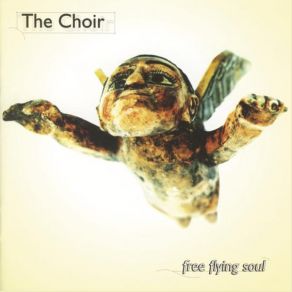Free Flying Soul
Download links and information about Free Flying Soul by The Choir. This album was released in 1996 and it belongs to Gospel genres. It contains 12 tracks with total duration of 44:37 minutes.

|
|
|---|---|
| Artist: | The Choir |
| Release date: | 1996 |
| Genre: | Gospel |
| Tracks: | 12 |
| Duration: | 44:37 |
| Buy it NOW at: | |
| Buy on iTunes $9.99 | |
| Buy on Amazon $9.99 | |
Tracks
[Edit]| No. | Title | Length |
|---|---|---|
| 1. | Salamander | 3:24 |
| 2. | Polar Boy | 4:34 |
| 3. | Sled Dog | 3:00 |
| 4. | Away With the Swine | 3:01 |
| 5. | The Ocean | 4:16 |
| 6. | If You're Listening | 5:40 |
| 7. | The Chicken | 6:26 |
| 8. | Slow Spin | 1:48 |
| 9. | Leprechaun | 2:47 |
| 10. | Yellow-Haired Monkeys | 1:29 |
| 11. | Butterfly | 4:05 |
| 12. | The Warbler | 4:07 |
Details
[Edit]Free Flying Soul is a little less noisy than the Choir's previous album, Speckled Bird, landing somewhere in between the buzz of that album and the darkly ethereal guitar sound of Circle Slide (which after half a decade remains the band's best album). The songwriting is a bit short on fresh ideas this time, and a few too many choruses slip into predictbale rock anthem territory, but there also moments of alluringly adventerous intelligence. Lyrically, the songs are a characteristic mix of bizarre imagery ("yellow haired monkeys in the yard"), universal themes (light vs. darkness) and overtly Christian messages ("all the shame in Jesus' name was covered when he died"). The most interesting song is "If You're Listening," the Choir's shadowy rumination on their own need for grace ("I'd rather be forgiven than enlightened"). Surrounded by prettily echoing ambient guitars, and underscored by a noisily thudding and buzzing Trent Reznor-esque bassline, the band frankly admits to egregious imperfections ("If you're listening to me now, I wouldn't blame you anyhow for running me out of town"). The song almost seems like an answer to Nine Inch Nails' similarly produced "Hurt," in which Reznor bemoans his own faults. But while Reznor despairingly warns his friends to stay the hell away from him, the Choir expresses hope for redemption. Often, rock bands tend either to point only at the faults of others (the Angry Young Men paradigm), or to wallow in hopeless self-pity. At their best, the Choir strike a rare balance of hope and humility.